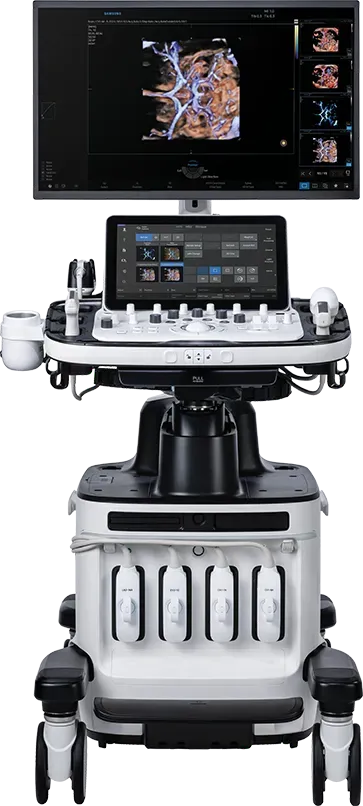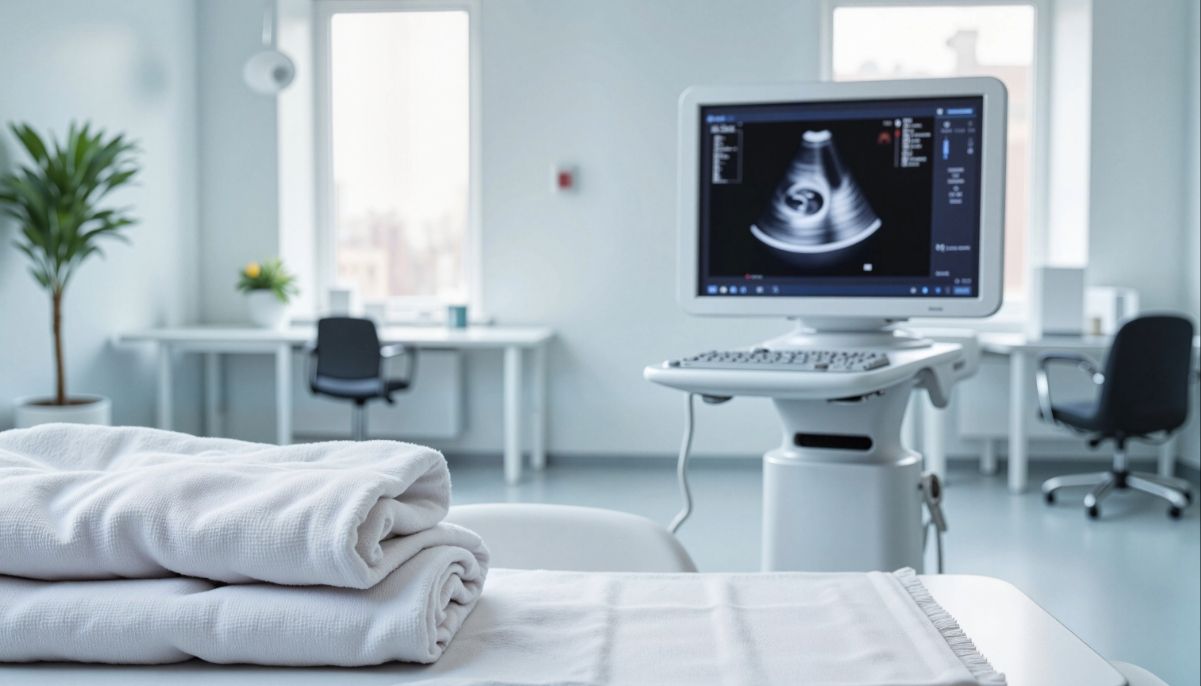Comparing the Samsung HERA W10 Elite vs. Philips EPIQ 7: A Clinical and Technical Review
Introduction
In the evolving landscape of diagnostic imaging, choosing the right ultrasound system is critical for delivering precise, efficient care. Two top-tier contenders—Samsung’s HERA W10 Elite and Philips’ EPIQ 7—stand out in the premium cart-based ultrasound category. While both systems offer cutting-edge imaging technology and user-centric features, they serve slightly different clinical priorities. In this in-depth comparison, we examine their strengths, workflows, and clinical applications to help medical providers and ultrasound techs make informed decisions.
System Overview
Samsung HERA W10 Elite
Launched as the flagship model in Samsung’s HERA (Hyper-aperture Enhanced Reconstruction Architecture) platform, the W10 Elite builds on its predecessor with AI-powered automation, premium image clarity, and enhanced ergonomics. Designed for high-end OB/GYN and women’s health applications, it also supports general imaging, vascular, MSK, and cardiac studies.
Philips EPIQ 7
Part of Philips’ trusted EPIQ family, the EPIQ 7 is a longstanding favorite among radiologists, cardiologists, and general imaging users. It features Philips’ proprietary nSIGHT Imaging architecture, known for outstanding penetration and contrast resolution, even in technically difficult patients. While slightly older than the HERA W10 Elite, the EPIQ 7 remains relevant due to its robust architecture and deep software support.
Image Quality and Processing
Samsung HERA W10 Elite
- Crystal Clear Imaging: Samsung’s Crystal Architecture enables exceptional clarity and uniformity across depths.
- ShadowHDR™ and ClearVision™: These features reduce acoustic shadows and speckle noise, especially helpful in fetal imaging.
- HQ-Vision™ 2.0: Provides sharper contrast and edge definition.
- MV-Flow™ and Lumi™: Specialized Doppler technologies that capture slow blood flow in high resolution, supporting better placental and fetal assessments.
Samsung clearly leans into OB/GYN and vascular specialties with these features, supporting detailed fetal structures and low-flow blood vessels.
Philips EPIQ 7
- nSIGHT Imaging Architecture: Offers true real-time imaging with superb resolution and frame rate.
- xMATRIX Probe Compatibility: Allows simultaneous 2D, Doppler, and 3D imaging without probe changes.
- Tissue Specific Presets (TSP): Automatically optimizes imaging parameters for different anatomies.
The EPIQ 7 excels in general imaging and cardiology with its deep penetration and versatility. It’s especially strong for imaging challenging patients and abdominal exams.
Probe Technology and Compatibility
Samsung HERA W10 Elite
- Offers a range of advanced probes, including wide-band convex, linear, and endocavitary options.
- S-Vue Transducers: Known for wide bandwidth and high sensitivity.
- Compatible with a 2D 3D/4D volume probe with advanced rendering capabilities for OB applications.
Samsung’s probes are ergonomic and lightweight, with a focus on women’s health and fetal visualization.
Philips EPIQ 7
- Extensive probe library including xMATRIX, PureWave, and TEE probes.
- PureWave crystal technology enables superior penetration and signal-to-noise ratio.
- Ideal for a broader set of applications—cardiology, vascular, MSK, abdominal, and OB/GYN.
Philips has long been a leader in transducer engineering, and the EPIQ 7 supports some of the most diverse and advanced probes in the industry.
IMAGE: Samsung HERA W10 Elite

AI and Automation
Samsung HERA W10 Elite
- BiometryAssist™ and LaborAssist™: Automated fetal measurement and labor tracking tools that reduce keystrokes.
- 5D NT™, 5D CNS+™, 5D Limb Vol.™: AI-based semi-automated tools to enhance workflow for fetal diagnostics.
- Elastography: Real-time strain and shear-wave options for liver and breast imaging.
Samsung’s edge lies in automated OB/GYN workflows, significantly reducing scan times and standardizing measurements.
Philips EPIQ 7
- Anatomical Intelligence for Imaging (AIUS): Delivers automatic vessel segmentation, optimal plane selection, and Doppler gate placement.
- AutoSCAN & Auto Doppler: AI-powered image adjustments during real-time scanning.
- SmartExam protocols: Guide sonographers through consistent acquisition paths across body parts.
Philips’ AI excels in vascular and abdominal studies, enhancing exam repeatability and throughput.
User Interface and Ergonomics
Samsung HERA W10 Elite
- 23.8” full HD monitor with touch panel interface
- Adjustable console with tilt and swivel capabilities
- ErgoGel wrist support, customizable height control
- 6-direction articulating arm for optimal screen positioning
The HERA’s interface is modern and intuitive, built for comfort during long scanning sessions, especially in high-volume OB/GYN environments.
Philips EPIQ 7
- 21.5” high-resolution monitor with 12” touch panel
- Intuitive UI with minimal touchpoints
- Adjustable control panel and monitor height for ergonomic comfort
The EPIQ 7 emphasizes simplicity and familiarity, making it ideal for multi-user environments like radiology departments.
Service, Support, and Longevity
Samsung HERA W10 Elite
- Backed by Samsung’s global service network
- Five-year standard warranty through authorized distributors
- Updates and patches are released regularly but may depend on distributor support
Philips EPIQ 7
- Supported by Philips’ national service infrastructure
- Five-year warranty when purchased through authorized partners
- Proven track record with continued software upgrades and probe compatibility
Philips systems are known for long lifecycle support, making the EPIQ 7 a safe investment for clinics seeking stability and service assurance.
Price and Value Consideration
- Samsung HERA W10 Elite: Generally priced slightly higher, reflecting its premium OB/GYN feature set and newer generation.
- Philips EPIQ 7: Offers
better overall value in mixed-use environments, especially when bought certified pre-owned with service agreements.
Conclusion
Both the Samsung HERA W10 Elite and the Philips EPIQ 7 represent excellence in ultrasound imaging. The key difference lies in clinical priorities: the HERA W10 Elite is OB/GYN-focused with automation and advanced rendering tools, while the EPIQ 7 shines in versatility and cardiology performance. Understanding your patient mix, clinical workflows, and budget will ultimately determine which system delivers the greatest return on investment for your practice.

Leading Women’s Health Providers in Houston, TX: Advancing Imaging Innovation Across Southeast Texas










